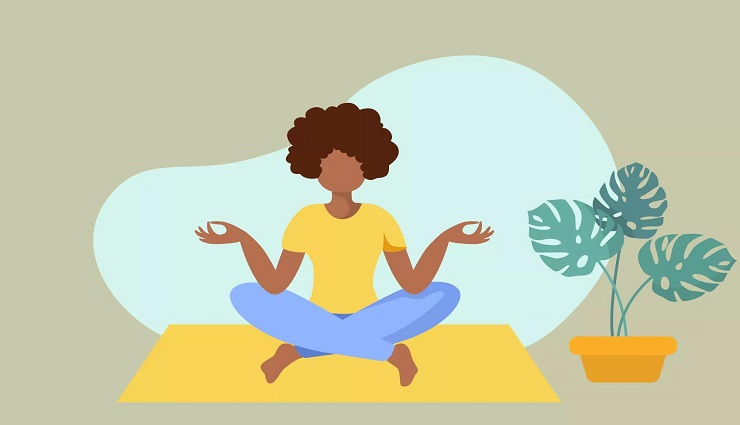Humans are social creatures and want to communicate with others. Caring about other people’s thoughts is also part of our innate desire to create and maintain intimate relationships. Of course, caring too much about other people’s opinions costs our mental health, so we need to know how to stop it so we don’t fall into the quagmire of “pleasing everyone at any cost.” Join us to review some great ways not to care what others think.
Why do we care what others think?
Thousands of years ago, our ancestors lived a group and social life. Hunting them, working with them, and taking care of them were together, and rejection from the group resulted in their death. Today, although the number of likes on our last post has nothing to do with our life and death, it strangely worries us that it originates from the same “need to be accepted” of our ancestors.
In our era, social networks greatly influence us, and the number of likes and followers directly affects people’s sense of self-worth. Trying too hard to please others and caring about their thoughts may be caused by childhood trauma, high social anxiety, or low self-confidence.
Is this importance helpful or harmful?
Spending too much time and energy on other people’s thoughts harms our mental health and puts us in a vicious circle of insecurity and vulnerability. On the other hand, we cannot and should not deny the critical role of this issue in creating healthy and meaningful relationships. If we hurt someone with our words or behavior, we should care about their discomfort to compensate for and resolve the annoyance. Otherwise, we definitely cannot establish deep and emotional relationships with others. But this importance to people’s thoughts should not be permanent!
The benefits of not caring what others think
The first effect of not caring about other people’s thoughts is comfort and freedom of thought. Its other benefits include:
- Fear of judgment is always a significant obstacle to doing small things. We can’t even be our true selves. The clothes we wear, the words we speak, and everything we do may be to please others. By breaking this rope of captivity, we can more easily find our true selves.
- Dealing with peers’ insistence on doing dangerous and immoral things becomes more accessible.
- We can help people in need more efficiently and expand the circle of kindness.
- Creating positive and supportive relationships increases our self-esteem and makes us feel more secure.
Signs that we care too much about other people’s thoughts!
Don’t forget that all the worries and concerns of the people around us are not worth listening to and giving importance to. If you see these few signs in yourself, you care more about the opinions of others than your mental health:
- Your response to criticism is always “change,” regardless of the fuss and from whom.
- You let others make decisions for you.
- You have no personal boundaries.
- You are a perfectionist.
- If you disagree with others, you remain silent.
- Your peace of mind depends on the approval of others.
- You keep apologizing, even when you haven’t done anything wrong.
- You rarely say no.
How do you not care about other people’s thoughts?
Every moment we try to attract people’s positive opinions, we get further away from our authentic selves. If you are struggling with such a problem, with the help of tips and exercises in this section, you can minimize the importance of other people’s thoughts in your mind.
1. Know how valuable you are!
The values we have are the solid reasons for our actions. If you eat healthy and nutritious food to keep yourself healthy, spend time with your friends because you love them or don’t lie because you value honesty, you shouldn’t care what other people think about your values. In fact, by committing to your values, you gain self-confidence so that you don’t care about what other people think.
2. Pursue your essential goals
If you are purposeful, you will no longer care what others think about your choices, priorities, and lifestyle. Whatever the goal is (starting a family, working and making money, or being successful in a particular field), as long as it is aligned with your values, the opinions of others will become insignificant.
3. Choose a few crucial people among your surroundings
At work, school, family, and social networks, we are in daily contact with hundreds and thousands of people whose opinions should not be equally important to us. To maintain balance, surround yourself with people who accept your true self and do not see the slightest hint of judgment in their behavior. For personal and social growth, you can give importance to the thoughts and opinions of these people to a certain extent.
4. Stay away from judgmental people

If you don’t only get positive energy from a relationship with someone, but also if they constantly point their finger at you, there is nothing wrong with ending this relationship! You are entirely responsible for your decisions, and no one is allowed to judge apart from the framework of constructive criticism. To keep toxic people away from your personal life, be sure to draw a firm boundary between yourself and these people!
5. Don’t be judgmental
Do not judge so as not to be judged. The next time you think of others, pause and replace the criticism with a neutral or positive thought. For example, if your colleague is wearing inappropriate clothes that do not suit your taste, instead of thinking about the fit of the dresses with her body, say to yourself: “How nice that she has enough confidence to wear such clothes.”
6. Learn to accept constructive criticism
Learn how to deal with constructive criticism and use it to improve yourself. First, get your mistakes without being defensive and ask the critic to give suggestions or guide you to improve the situation. If his words are unclear, ask for clarification and discuss it quickly.
7. Know that people are not thinking about you as much as you think!
We cannot stop people from thinking. No matter how we step, someone will think about us and give an opinion, but not as much as we imagine! “People care more about their simple headache than anyone else.”
8. Stay away from social media for a few days

Temporarily, stay away from social networks. The more you know about people’s lives, the more your mind is occupied with what they think about your life. Do not see photos, do not post photos, do not hear news, do not publish news. A few days of complete ignorance is the best way to get into the habit of not knowing what other people think.
9. Never read anyone’s mind
Remember that our harshest critic is probably ourselves, but we will not accept every perception we have about ourselves! Instead, we should challenge these negative thoughts as much as possible. This is the most correct path to self-awareness. If you think that the people around you are more confident and capable than you, remind yourself that you have no solid reason to believe this thought is true, nor can you see inside people’s heads and understand how they think about you! So, the best thing to do is to avoid these disturbing thoughts. Is.
10. Remind yourself that you are not going to make everyone happy!
People always find something to complain about! Even if you try your best, you can’t please everyone simultaneously. So why let them control your emotions? Why should their thoughts and opinions define whether you are good or not? We know that is easier said than done. However, it would be best if you learned with practice that you can’t constantly spend energy on keeping people happy.
11. Let go of comparison and disappointment

Constantly comparing yourself to others is a slippery slope that makes you feel ashamed even of your achievements. You might think you are “behind others,” or at least that’s what they think about you! Remind yourself that you are the only one who has walked the path of your life, which is not comparable to anyone else’s life.
12. Practice your acceptance
Regardless of what others think, ask yourself, “Who do I want to be?”
Take a long-term view from your current state to your mental ideal point, and remember that whatever character you are at any point in time is valuable and admirable. As a result, if someone interferes in your vision of the future, it should only be to support you and reach that ideal point, and nothing else!
13. Forgive yourself for mistakes
Even if you make a terrible and wrong decision, you will not lose much of your worth. Everyone makes mistakes. Instead of focusing all your thoughts on your errors and the perception of others about those mistakes, forgive yourself and move past them. Affirmative statements such as “I am worthy and valuable” are conducive to dispelling worries and accomplishing great things.
14. Get help from a counselor
The last solution is to talk to a counselor and therapist. These people help you learn the skills to face criticism and increase your self-confidence, and with the help of these skills, you care less about the opinions of others. Cognitive behavioral therapy (CBT) teaches us the right way to think. With its exercises, you learn how to deal with unhealthy feedback and unnecessary stress to see the most minor damage.
at the end
We all want to be liked and approved by the people around us. This acceptance and affirmation activates oxytocin receptors in the brain and promotes a sense of security. But if it exceeds the limit, it not only does not have a positive effect but also waters the roots of anxiety and micro-gross personality weaknesses. Therefore, all of us must be familiar with the methods of not caring about other people’s thoughts and not sacrificing our mental health for the satisfaction of strangers and acquaintances by setting the correct boundaries.
How much do you care about the opinions and thoughts of others? Tell us about your experiences in the comments section.
Warning! This article is only for educational purposes;d to use it, it is necessary to consult a doctor or specialist.



